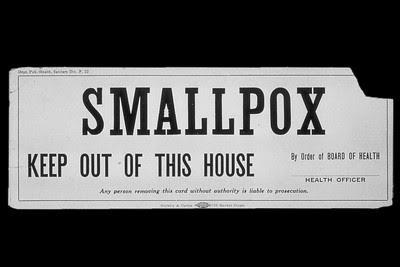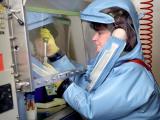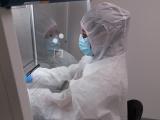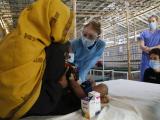With the bungled responses to the COVID-19 pandemic and a recent mpox outbreak still fresh in mind, a new report from the National Academies of Sciences, Engineering, and Medicine highlights the United States' need to fortify its preparedness for a smallpox outbreak.
While the World Health Assembly declared the eradication of the highly contagious and deadly smallpox virus in 1980, experts remain concerned that the United States wouldn't be able to marshal enough tests, vaccines, and treatments to contain an intentional or accidental release or natural resurgence—particularly amid evolving threats and technologies.
Only two countries—the United States and Russia—are known to have live samples for research purposed of the variola orthopox virus that causes smallpox, per the World Health Organization. But since an American biotech firm announced in 2017 that a Canadian scientist had synthesized an extinct horsepox virus (also an orthopox virus) de novo in a lab as part of an attempt to create safer smallpox vaccines, scientists suspect smallpox may not be so well contained.
"The old idea that it's only in two labs doesn't hold any water anymore," said Michael Osterholm, PhD, MPH, director of the University of Minnesota's Center for Infectious Disease Research and Policy (CIDRAP), publisher of CIDRAP News. "I believe to this day that it's very possible that it could still be in other hands, particularly in North Korea."
The report, done at the behest of the US Administration for Strategic Preparedness and Response, also acknowledges the threat: "Advancements in genome science and genetic engineering raise the possibility of deliberate re-creation and misuse of variola virus, considered appealing to terrorists for its potential to create a more lethal and transmissible strain."
Smallpox, characterized by a fever and disfiguring rash, killed 3 of 10 of those infected before it was eradicated, and blinded or permanently scarred many others.
Stockpiled countermeasures 'imperfect,' limited
The United States' national stockpile contains three kinds of smallpox vaccines, two types of smallpox antivirals, and a drug to treat orthopox-related complications. Also, the report said, Laboratory Response Network labs can test for smallpox virus in clinical samples.
"And still, the MCMs [smallpox medical countermeasures] that have been stockpiled are imperfect: some vaccines and treatments may lead to serious side effects; some are cumbersome to administer; and no diagnostics are available at health care offices or other points of use.


















